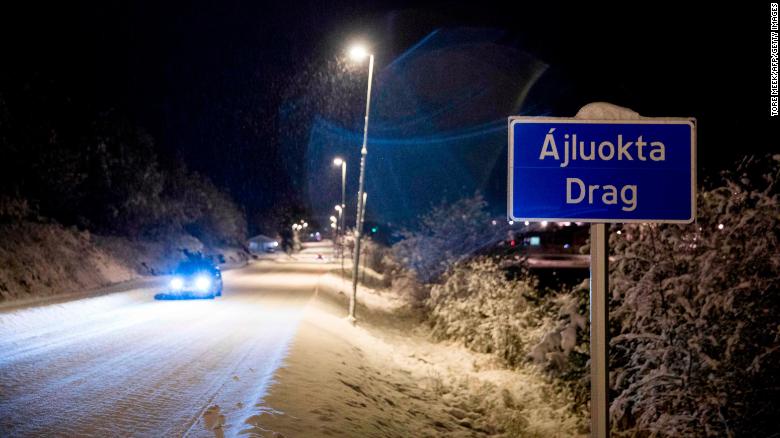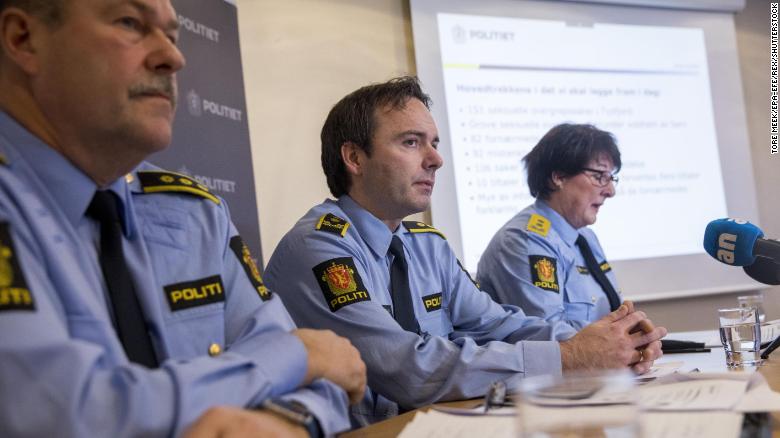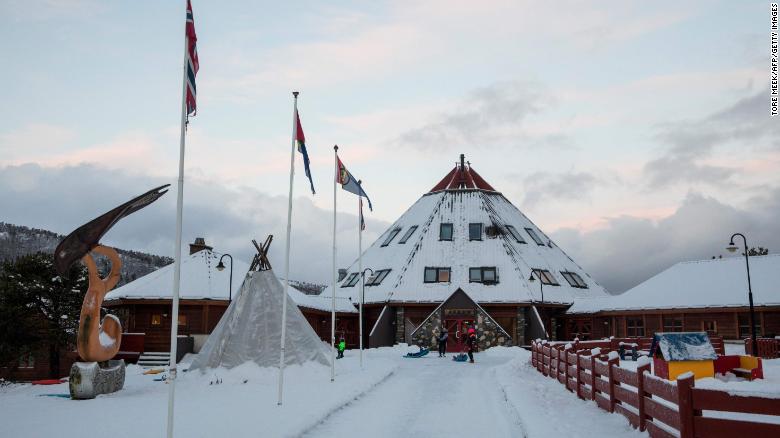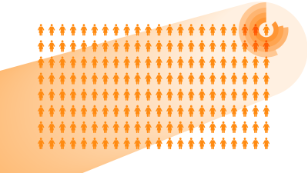Norway police uncover 150 cases of rape and assault in remote region
(CNN)More than 150 cases of alleged sexual assault have been uncovered in a remote region in northern Norway, according to a police report published Tuesday.
The alleged crimes stretch over several decades, with some dating back to 1953 and the most recent occurring in August this year. They all took place in the rural municipality of Tysfjord, which has only around 2,000 inhabitants.
Of the 151 cases, 43 involve rape, including three assaults on children. Sexual intercourse with children under 14 is the alleged offense in 40 of the cases.
Sponsor Content
How Judo is being used as a powerful educational tool
By practicing judo, children can discover the benefits of participating in sport as a way ofbuilding their self-esteem.
Content provided by Judo Federation
Sexual harassment: How it stands around the globe
The youngest of the 82 victims is four years old, while the 92 suspects are between 10 and 80 years of age, according to the report.
Police said most of the alleged suspects and victims belong to the Sami community, formerly known as Lapps, an ethnic minority group descended from nomadic peoples who inhabited northern Scandinavia for thousands of years.
"I'm very sad for the community," Vibeke Larsen, president of the Sami Parliamentary Council, an elected body that promotes the interests of the Sami in Norway, told CNN. "They've been through a hard process and they have a hard process ahead of them."
'A national tragedy'
A report by the Norwegian newspaper Verdens Gang in June 2016 prompted the police investigation. In an article for the paper during the course of the probe, Larsen described the scandal as "a national tragedy" and called for help from national authorities.
"The extent of the tragedy has become so great that it is not realistic to believe that a small municipality will be able to handle this alone."

The Tysfjord municipality in northern Norway is home to about 2,000 people.
She also praised the people who had come forward to tell their stories. "By breaking taboos about sexual assault, they are in a position to change the society they are part of."
The majority of the roughly 65,000 Sami live in Norway, with other communities in Sweden, Finland and Russia. There are three different -- and mutually unintelligible -- Sami languages.
Periodic attempts to assimilate these communities into Scandinavian societies have often been met with resistance by the Sami, many of whom are keen to preserve their culture and traditions.
Many of the people involved in the alleged crimes were also affiliated with the Laestadian Church, a conservative Lutheran revival movement, according to the report.
Tysfjord municipality

Map data ©2017 Google, INEGI, ORION-ME



200 km
The police said they had "no reason to believe that ethnicity or belief in itself can explain the extent of the assaults," but acknowledged that certain cultural factors had played a role in the lack of reporting.
Strong family ties and loyalty to the ethnic community are highly valued among the Sami, the report explains, but these also acted as "mechanisms that create silence about assault."
Many victims were reluctant to tell their story for fear of damaging family ties or breaking up the community, according to the report.
There was, however, a "strong desire to break the silence," the report said.
Police admit mistakes
Widespread distrust of authorities, including the police, was also a significant factor in allowing the scandal to be hidden for so long, according to the report.
The police said that a key goal of the investigation had been to build trust with the Sami community, as well as to prosecute offenders and prevent new abuses.
The Sami "don't trust the police as much as the Norwegians do," said Larsen. In the past, Sami people have often been told to become "good Norwegians and leave their own culture, language and symbols behind," she explained. "That's why they have distrust in the system."
"They try to fix their problems in their own communities, their own families, and not use the system as it should be used," she said.
She said she had heard reports that the community in Tysfjord was starting to trust the police more. "They can see that the police will help them," she said. "But trust is built slowly."

Norwegian police officials Aslak Finvik, Oeyvind A. Rengard and Tone Vangen (left to right) spoke to the press on Tuesday about the investigation.
Police Chief Tone Vangen admitted at a news conference Tuesday that errors had been made before the official investigation began last June. "I see that the job the police did up to June 2016 was not good enough," she said. "On behalf of the police, I would like to offer my sincerest apologies."
During the investigation, the police also received extensive documentation indicating that children in the community had been exposed to serious neglect as well as alcohol abuse and violence.
"Although many of the cases occurred a long time ago, it is still hard to understand that no one has seen anything or intervened," the report said.
'We must dare to listen'
The investigation was launched two days after a report headlined "The dark secret" was published in Verdens Gang, in which 11 people from Tysfjord told their stories of abuse.
Ylva Maria Pavval, who runs Niejda, an organization for Sami girls and women, responded with an open letter calling for more openness within the Sami community.
"The Sami people is a minority in the greater communities of our nations, and it's natural and understandable that we'd want to protect our people, our local community and our families," she wrote.
"This, however, makes it more difficult to report a crime committed by one of our own. As it is, it takes great courage and requires sacrifices to do so.
"When these stories make their way into daylight, we must dare listen to them," she wrote.
"We need to find ways to deal with these issues in Sami society so that we can ensure that victims get all the support they need."
CNN's Jim Stenman contributed to this article.
News Courtesy: www.cnn.com













